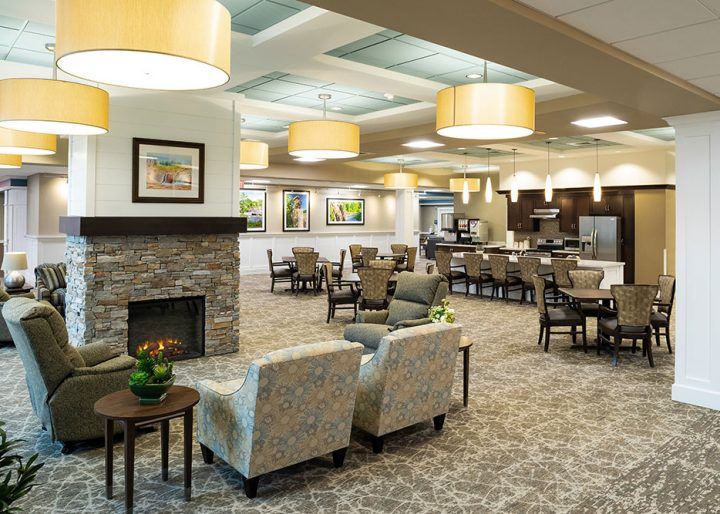Recognizing Exactly How Assisted Living Supports Clients With Dementia Care Requirements
Aided living centers are increasingly acknowledged for their critical role in addressing the intricate care demands of individuals with dementia. By using a structured yet nurturing setting, these facilities not just advertise safety and security and health yet additionally foster a feeling of freedom via personalized care plans.
Overview of Dementia Care
Mental deterioration care is increasingly vital as the frequency of dementia-related problems climbs amongst aging populations. This growing group trend necessitates a thorough understanding of dementia and the various techniques to care. Mental deterioration includes a variety of cognitive disabilities that hinder everyday life, influencing memory, reasoning, and communication capabilities. The condition can vary substantially in its presentation, calling for customized care methods to satisfy specific requirements.
Effective dementia care involves a multidisciplinary approach, including clinical, emotional, and social assistance. Medical care experts, caregivers, and relative have to team up to produce a nurturing atmosphere that promotes the wellness of people with dementia. Secret parts of dementia treatment include individualized care plans, cognitive excitement treatments, and behavior treatments focused on enhancing lifestyle.
Additionally, it is necessary to acknowledge the psychological and psychological challenges encountered by both clients and caregivers. Education and training for caretakers play a critical function in promoting understanding and compassion, thereby boosting interactions with those affected by dementia. As the need for dementia care remains to climb, the focus must continue to be on delivering caring, person-centered care that respects the self-respect and preferences of people coping with this problem.
(Dementia Care Charlotte)
Duty of Assisted Living Facilities
Helped living facilities play a crucial duty in offering care for individuals with mental deterioration, offering a supportive setting that stabilizes self-reliance with the essential help. These facilities are designed to deal with the one-of-a-kind demands of locals, advertising a sense of area while ensuring safety and security and health.
In an assisted living setup, experienced employee provide perpetual support, aiding with day-to-day activities such as bathing, clothing, and drug administration. This degree of treatment is crucial for individuals with dementia, that may have a hard time with these tasks due to cognitive decrease. In addition, centers often include memory-enhancing programs and social tasks tailored to stimulate cognitive functioning and encourage social interaction.
The physical environment of assisted living centers is likewise optimized for safety and security, featuring safe entryways, well-lit paths, and clear signs to assist homeowners browse their surroundings. These areas promote a sense of belonging, minimizing the sensations of seclusion that individuals with mental deterioration might experience.
Personalized Care Plans
To ensure that each resident obtains the most appropriate care, customized treatment strategies are essential in assisted living facilities for individuals with dementia. These strategies are customized to meet the special requirements, choices, and obstacles faced by each resident, advertising their self-respect and top quality of life.
The development of a customized treatment strategy generally begins with a thorough evaluation performed by health care professionals. Memory Care. This evaluation examines the individual's cognitive abilities, physical wellness, psychological health, and social preferences. Input from relative and the resident themselves is crucial, as it provides useful insights right into their history, routines, and individual rate of interests
Once the analysis is total, a multidisciplinary group works together to create a treatment plan that lays out details objectives and interventions. This may include medication administration, daily living help, and behavioral techniques customized to mitigate anxiousness or agitation.
Regular testimonials and updates to the care strategy ensure it continues to be pertinent as the person's condition advances. Memory Care. By prioritizing customized treatment, aided living facilities can enhance the overall health of locals with dementia, promoting an environment that values their individuality while addressing their care requires properly
Involving Activities and Socialization
Engaging tasks and socializing play an essential role in boosting the lifestyle for locals with mental deterioration in nursing home. These activities are developed to stimulate cognitive function, advertise psychological wellness, and foster connections among locals. Structured programs, such as art my explanation therapy, music sessions, and memory treatment, provide chances for people to share themselves artistically while likewise activating positive memories.
Socialization is similarly crucial, as it deals with feelings of seclusion and solitude that can go along with mental deterioration. Team activities, including games, team getaways, and communal eating, encourage communication and aid homeowners build supportive partnerships with peers and caretakers. This feeling of neighborhood not only improves their daily experiences however likewise adds to an extra stable psychological setting.
Moreover, involving activities can be tailored to private choices and cognitive levels, making sure that each resident can get involved meaningfully. By producing an atmosphere that prioritizes engagement and social interaction, helped living centers can substantially enhance residents' total psychological health, cultivating a sense of objective and belonging. Inevitably, these campaigns are necessary components of detailed mental deterioration treatment, considerably affecting locals' total wellness and joy.
Advantages of Neighborhood Assistance

Furthermore, community support promotes social interaction, which is vital for cognitive and psychological wellness. Involving with peers and taking part in team tasks can enhance mood and encourage reminiscence, adding to a better sense of belonging. This social engagement is important, as isolation and isolation can intensify cognitive decrease.

(Assisted Living Charlotte)
Final Thought
To conclude, assisted living centers function as crucial environments for individuals with mental deterioration, providing structured support that cultivates both freedom and safety. The execution of customized care strategies makes certain that each citizen's unique requirements are fulfilled, while involving tasks promote social communication and cognitive interaction. The feeling of community within these facilities considerably alleviates sensations of seclusion, enhancing general psychological wellness. Thus, assisted living plays a necessary role in improving the high quality of life for individuals with dementia.